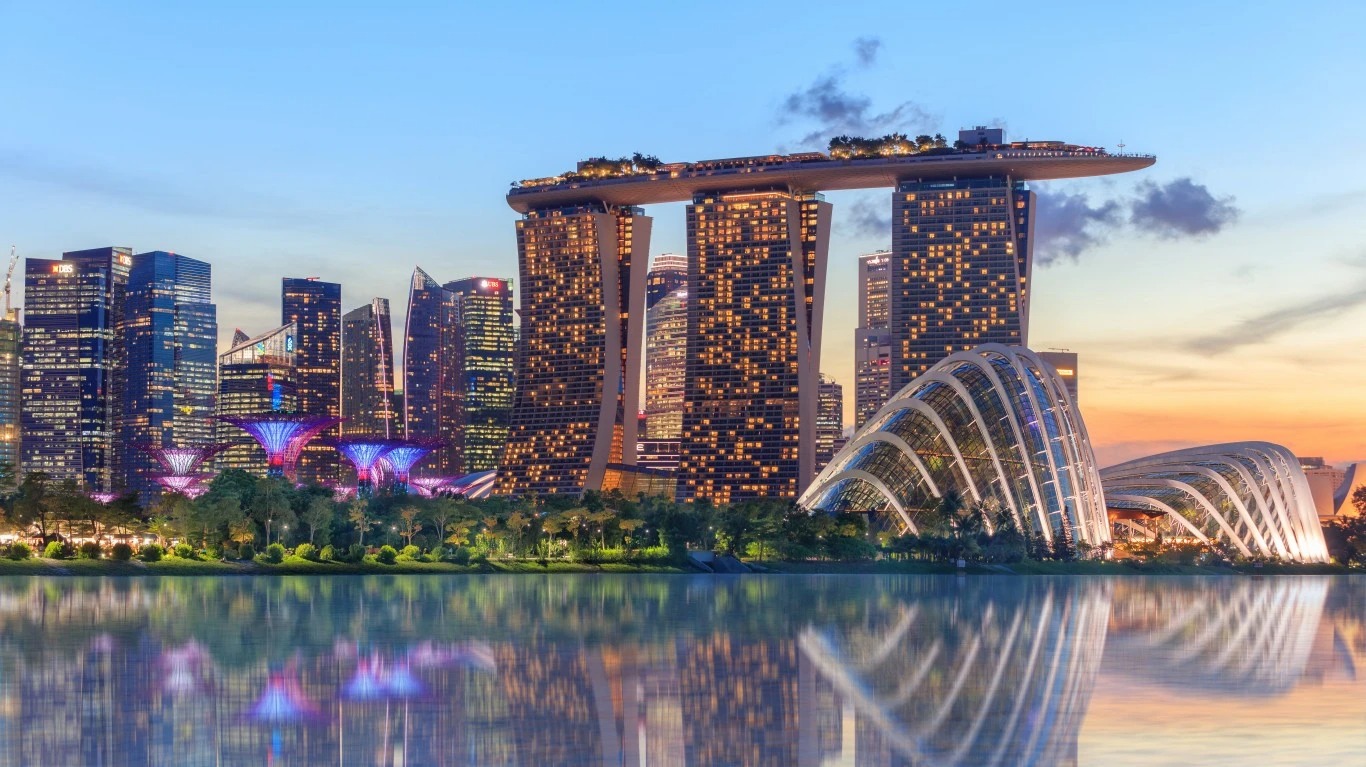
The United States is frequently referred to as the richest country on earth. The basis for this is the country’s gross domestic product, or GDP. At last count, the U.S. has a GDP of about $23 trillion, well above second-place China’s $17.7 trillion. However, GDP is only one way to measure wealth.
24/7 Wall St. used a different measure to determine the richest country in the world, gross national income per capita. Data for 193 countries and special regions came from the World Bank. By this measure, the United States barely cracks the top 10. (By contrast, these are the poorest countries in the world.)
Many of the richest countries in the world benefit from having large multinational corporations headquartered within their borders. Even if these companies earn money overseas, that income is counted towards the gross national income of the country where the business is based.
The world economic landscape has shifted to be increasingly more globalized and interconnected. As a result, many companies, including many that are headquartered in one of the nations on this list, have extended their footprint into dozens of countries and grown their valuation to tens of billions of dollars.
Other countries among the world’s richest are financially well off because they have an important natural resource, generally oil, that is valuable and abundant enough to create many billions of dollars worth of economic activity. Conversely, many others have very large and diverse economies that excel in a number of different fields. (Find out if any of the richest countries are also the happiest. These are the happiest countries in the world.)
Living in a wealthy country comes with numerous advantages, perhaps most importantly is health. Those in countries with high incomes are generally able to get access to better health care and food, and generally have very low maternal and child mortality. Most rich nations have a higher average life expectancy than the world average life expectancy.
The special administrative region of China located at China’s southern tip, Macau’s GNI per capita is $117,340 — nearly $100,000 higher than the worldwide GNI per capita. Macau also ranks as one of the world’s healthiest countries with an average life expectancy at birth of 84.2 years, the third highest in the world. Although it is known as the gambling capital of the world, Macau is also considered a tax haven as foreign earnings are not taxed.
Click here to see the richest countries in the world.
Click here to see our methodology.





